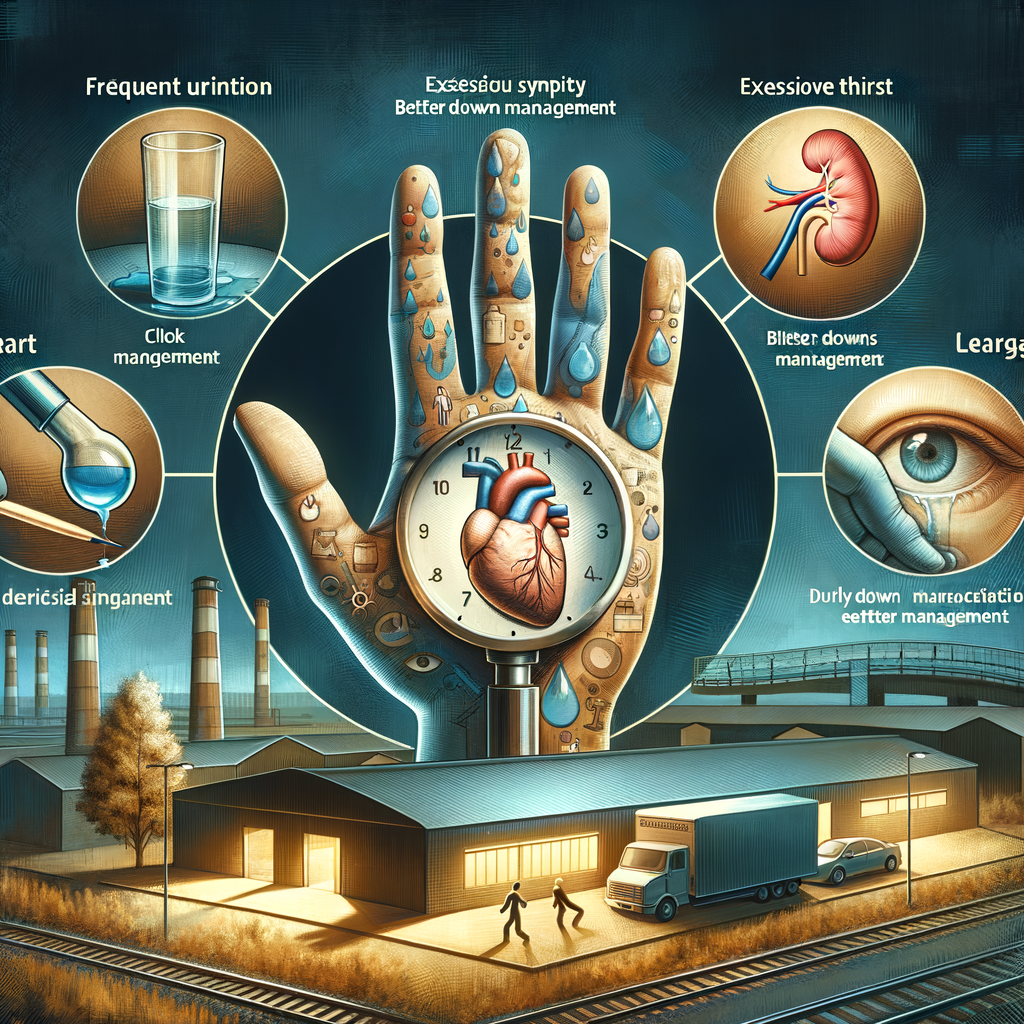A Comprehensive Guide to Understanding the Symptoms of Diabetes
Diabetes is a chronic condition that arises when the body is unable to properly manage blood glucose (sugar) levels. The rising prevalence of diabetes, particularly Type 2 diabetes, emphasizes the necessity for public awareness regarding its symptoms and early indications. In this blog post, we delve into the myriad symptoms of diabetes, their implications, and the urgent need for early detection.
What is Diabetes?
At its core, diabetes is a metabolic disorder characterized by high blood sugar levels over a prolonged period. It is primarily categorized into two types:
- Type 1 Diabetes: An autoimmune condition where the body does not produce insulin.
- Type 2 Diabetes: The more prevalent type, wherein the body becomes resistant to insulin or does not produce enough insulin.
Common Symptoms of Diabetes
Recognizing the symptoms of diabetes is crucial for timely diagnosis and management. The following are some of the most common symptoms associated with this condition:
1. Frequent Urination
One of the earliest signs of diabetes is polyuria, or frequent urination. High blood sugar levels lead to increased urine production as the kidneys work to filter and remove excess glucose.
2. Excessive Thirst
This symptom often goes hand in hand with frequent urination. As the body loses more fluid, a person may experience an unquenchable thirst or polydipsia, requiring frequent water intake.
3. Increased Hunger
Despite consuming food, individuals with diabetes may feel unusually hungry, a symptom known as polyphagia. This occurs as glucose is inefficiently used by the body’s cells, leading to a feeling of starvation.
4. Fatigue
Chronic fatigue is a common complaint among those suffering from diabetes. Inadequate glucose absorption into the cells can result in a significant decrease in energy levels, causing exhaustion.
5. Blurred Vision
High blood sugar levels can cause the lens of the eye to swell, leading to temporary blurred vision. This occurs due to the change in fluid levels in the eye, impacting vision clarity.
6. Slow Healing of Wounds
Diabetes can impair blood circulation and reduce the body’s ability to heal. As a result, wounds and infections may take longer to heal, leading to potential complications.
7. Breath Has a Distinct Odour
Diabetes can cause the breath to smell fruity.
8. Genital itching or thrush
This can also be a sign of diabetes if supported by other symptoms.
Additional Symptoms in Advanced Cases
If diabetes remains uncontrolled, more severe symptoms may develop. These include:
- Darkened Skin: Areas of dark, velvety skin may appear in skin folds, indicating insulin resistance.
- Numbness or Tingling: Nerve damage, known as diabetic neuropathy, can lead to numbness, tingling, or pain in the extremities.
- Increased Infections: Diabetes can weaken the immune system, leading to an increased risk of infections, particularly in the skin and urinary tract.
The Importance of Early Detection
Understanding and recognizing these symptoms is vital. Early detection of diabetes can significantly impact the management of the condition and reduce the risk of complications, such as cardiovascular diseases, kidney failure, and neuropathy. Regular screening and consultations with healthcare professionals are paramount for those at high risk.
Conclusion
Diabetes is a complex illness that requires vigilance and proactive management. By being aware of the symptoms and advocating for early testing, individuals can take control of their health and work towards a better quality of life. If you or someone you know is experiencing these symptoms, it is imperative to seek medical attention promptly.
There you have it… See what works for you…
Campbell M Gold
To Create Health, Wealth, Success, and Longevity through the Power of Your Subconscious Mind, Visit: Campbell M Gold.com
Visit The Store and see what else can be of help


Leave a Reply
You must be logged in to post a comment.